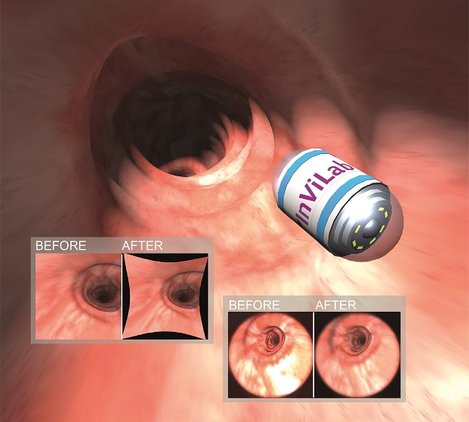Enhancing the precision and efficiency
Endoscopy plays a pivotal role in both diagnostic examinations and minimally invasive surgical procedures. A special type is wireless capsule endoscopy, where patients ingest a small pill-shaped camera. Despite its importance, the endoscopic images and videos exhibit serious drawbacks, such as substantial distortion, low resolution, missing frames, specular reflections, and so forth.
In this project, I will tackle several of these challenges. In order to do so, I will first develop a novel endoscopic camera calibration procedure. Next, based on this, I will adopt approaches from the field of Gaussian process latent variable models and the world of generative AI in general to formulate models that construct an alternative latent space representation of the data. Probabilistic machine learning models, such as Gaussian processes, offer interpretability (no black-box), which is especially crucial in evidence-based medicine as it offers transparency and helps build trust with clinicians. Improved camera calibration and innovative perspectives on latent spaces hold the potential to revolutionize various techniques, including 3D trajectory estimation, mosaicking and many more.
Getting more out of endoscopic imaging
As a result, my research stands to significantly enhance the precision and efficiency of clinicians when interpreting endoscopic images. This, in turn, promises to elevate detection rates, enhance the accuracy of abnormality size measurements, and contribute to the advancement of minimally invasive surgery.


